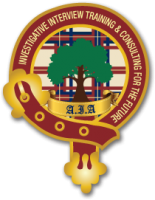This foundational block introduces investigative professionals—analysts, auditors, evaluators, fraud examiners, investigators, and inspectors—to the core principles and applications of science-based interviewing. Participants will explore the anatomy of effective interviews, the profiles of successful interviewers, and the strategic selection of interview types across criminal, civil, and administrative contexts.
Drawing on contemporary research in cognitive psychology, strategic communication, and investigative interviewing science, the course emphasizes how structured, evidence-informed approaches can enhance accuracy, reduce bias, and improve outcomes. Through scenario-based learning and guided analysis, participants will learn to tailor interviews to the needs of their environment—whether conducting subject interviews in a criminal investigation or gathering witness accounts in an audit setting.
Science-Based Interviewing Integration
The course introduces key concepts from science-based interviewing, including:
• Strategic Use of Evidence (SUE): Leveraging known facts to assess credibility and elicit disclosures.
• Cognitive Interviewing Techniques: Enhancing memory retrieval and minimizing contamination.
• Rapport Building and Ethical Framing: Creating conditions for cooperation and truthful responding. • Interview Planning and Structure: Aligning interview goals with case objectives and legal standards.
Course Objectives
By the end of this block, participants will be able to:
• Identify the characteristics and competencies of successful interviewers.
• Distinguish between interview types and select appropriate formats for investigative contexts.
• Recognize common elements of effective interviews and how they vary across environments.
• Apply science-based interviewing principles to improve accuracy, completeness, and fairness.
• Evaluate interview scenarios to determine appropriate strategies for subjects, witnesses, and victims.
• Understand the legal and procedural implications of interview choices in criminal, civil, and administrative investigations.

